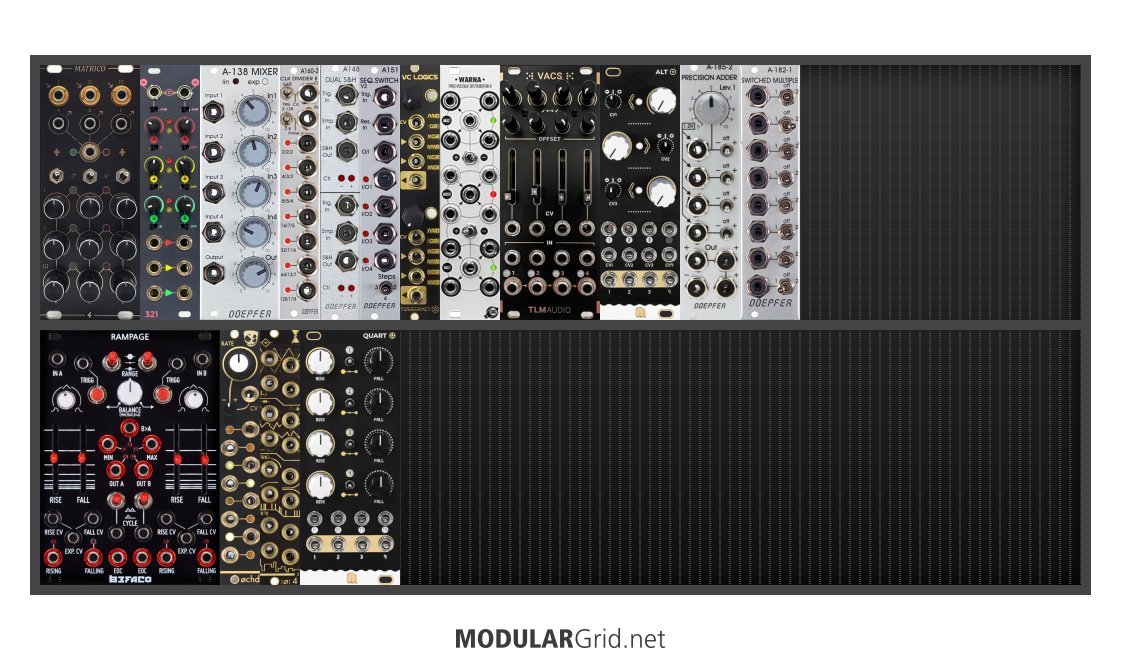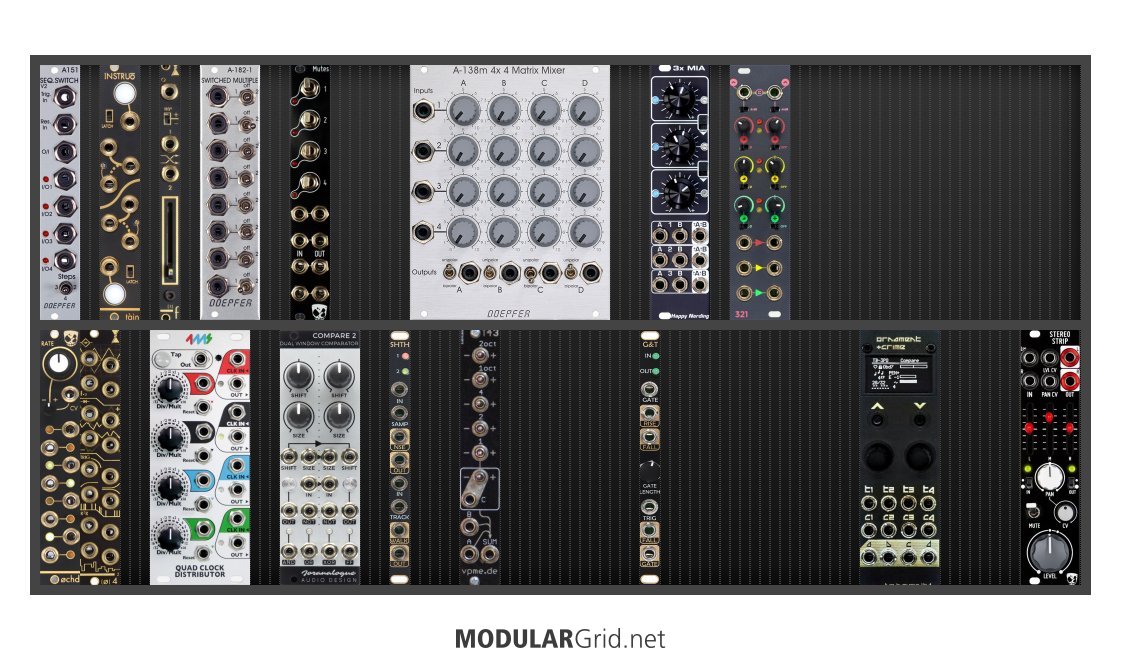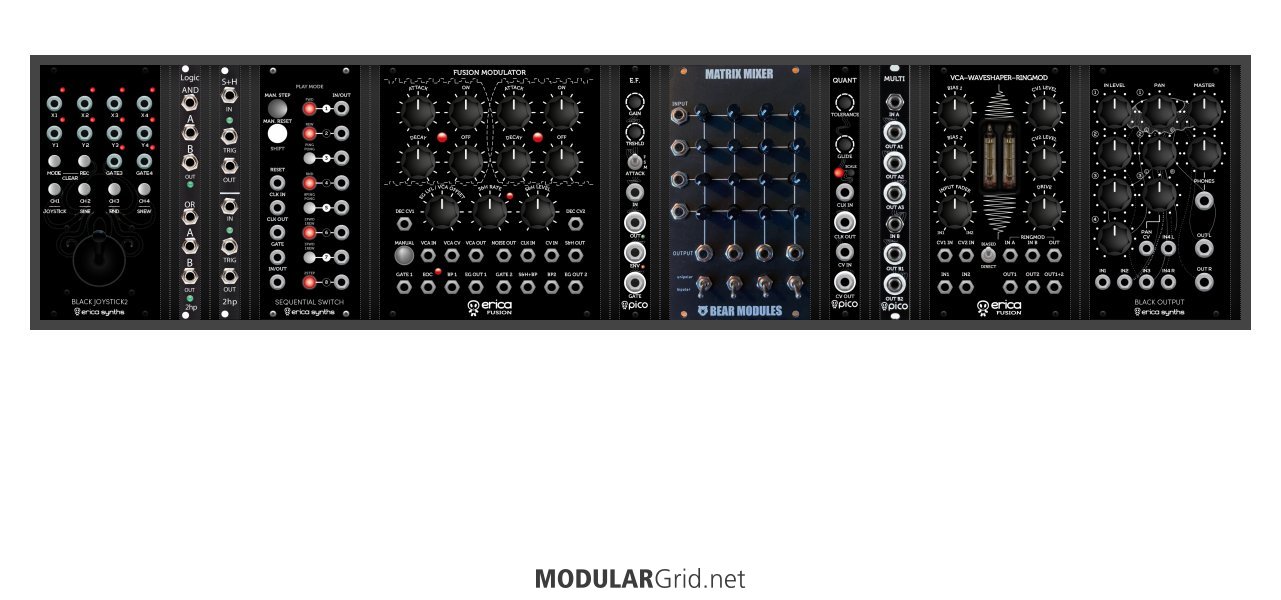Hi,
After almost two years in the world of modular synthesizers, I have finally had to accept that utilities are very important, I know that they are modules without very exciting functions, but without them, the rest of the modules do not work.
As I see that in these forums there are many "My First Rack" type questions, it occurred to me to set up a rack where I have collected the utilities that I have needed over time, and that have opened up many possibilities for me personally.
On the one hand I have included some that I personally have, and others adjusted in price, because that is what I think any beginner is looking for.

-Mixers: Matrix. Indispensable. The ST one works for me, it only has 3 channels but it is small in space. An auxiliary mixer, for example, mixing gates, or simply any CV
-Attenuators/Attenuverters/Polarizer. To fade or reverse CV. Useful to act on modules that do not have their own attenuators. I currently have an Intellijell Triatt but the one from Frapp tools will be my next purchase.
-Sequential Switch/Logics/Switched Multiple. Perfect for creating signal paths.
-Sample And Hold. A simple and efficient stepped CV generator.
-Precision Adder and Buffered Mult. To work and modify quantified CVs.
-VCA's, well, I like them if they can be cascade type (clone veils). I like the Nano module, I think it will be my next purchase. Useful to manage volume in audio sources as well as to modulate cv's
-Function generator. I put Rampage because it's the one I have and I'm very happy. But I imagine there are many more Maths fans. The comparator functions, Max, Min, cycle ends, etc. are very useful.
-Envelope generator. I have the Nano module and it works very well for me. A 4XAD with 3 speeds and LFO mode.
-LFO's. Bipolar modulation source. A module that I really like is the OCHD 8xLFO with its expansion.
According to my humble opinion, with this you can handle two voices, two effects modules and two filters.
It would be great if users with more experience than me (there are many here) would correct or add comments to this post.



